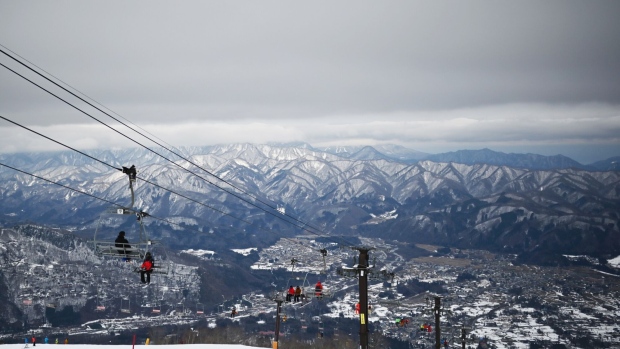Jul 2, 2024
Tourism Boom, Chip Plants Propel Record Japan Land Price Growth
, Bloomberg News

(Bloomberg) -- Japan’s roadside land values marked their biggest increase on record, boosted by areas that have benefited from the country’s booming tourism and shifts in the global semiconductor supply chain.
Hakuba, famed for its skiing and hiking in the picturesque Japanese alps, saw the biggest increase in assessed land price — growing 32.1% in the past year, according to data released Monday by the National Tax Agency. Kikuyo, a small farming town in Kumamoto Prefecture that is home to a new Taiwan Semiconductor Manufacturing Co. factory, was second with a 24% increase in roadside land value.
Nationally, roadside land values grew 2.3% on average — marking a third consecutive annual increase and the fastest rise since comparable data became available in 2010. An area of Tokyo’s Ginza district, known for its concentration of luxury designer shops, had the most expensive land in Japan for the 39th consecutive year.
The return of inflation for the first time in decades, coupled with a weak yen and low borrowing costs that have drawn foreign investors, have all contributed to a recovery in Japan’s real estate market. Last year, rural land prices rose for the first time in 30 years, according to the Ministry of Land, Infrastructure, Transport and Tourism.
The tax agency’s roadside land value figure is decided by analyzing recent sale prices and other data, and is used to calculate inheritance and gift taxes. The values are as of Jan. 1 this year, and compared with the same time in 2023.
The popularity of Japan’s powder snow has drawn global investor interest in its ski resort areas and already driven up land values in places like Niseko in the northern island of Hokkaido.
Japan’s bid to boost domestic chip production has helped draw the likes of TSMC to Kumamoto. The world’s largest contract chipmaker is planning to building a second chip fabrication plant near the existing factory, with operations scheduled to begin by the end of 2027.
©2024 Bloomberg L.P.





